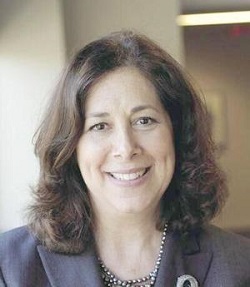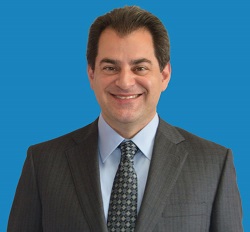12/20/2021
Donations After Death Gift That Keeps on Giving
- Share This Story
ALEX KRUTCHIK | STAFF REPORTER
Article reprinted with permission from Cleveland Jewish News
Many people have philanthropy in their heart. Throughout their lives, these people make sure to give back and support organizations that are important to them, whether it is synagogues, hospitals or food banks. But how can someone continue to give even after they die?
Brian Sokol, chief development officer at the Menorah Park Foundation in Beachwood, and Carol Wolf, assistant vice president of planned giving and endowments at the Jewish Federation of Cleveland in Beachwood, said there are ways to continue supporting organizations after death.

Wolf
“Leaving legacy gifts in your estate to organizations of choice is very common,” Sokol said. “Most philanthropists do this in some capacity. Many donors make a legacy gift to an organization, then increase the amount over time, as they consider themselves to be an ‘investor’ in the organization and its mission, and are able to provide interim support during their lifetime.”
Sokol said it’s quite easy to leave a legacy gift to an organization. He said all that’s needed is to include the charity’s information and to have it acknowledged accordingly in your will. Or, for a non-binding pledge that is payable upon death, the pledge becomes due when your estate is being settled and is revocable at any time during your lifetime.
“The process starts when you either meet with your estate planning attorney to draw up your comprehensive estate plan, or when you make the designation and sign the letter of intent with the organization, reflecting that it will take effect after death and closure of the estate,” Sokol said.

Sukol
Wolf said the main reason someone might give to a charity is because they’ve given to that charity their whole life and you want to support it in perpetuity after their death.
“It could be your day school, or the Jewish Federation if you’ve given to the campaign for 50 years,” she said. “But what usually motivates people is that they want to leave some kind of a mark that they were here. They want to leave a legacy. They want their legacy to include more than just their family. They want it to be bigger.”
Sokol said a number of different types of legacy gifts can be left, including some deferred entirely until death.
“The most common is the bequest, a promise in your will to give a percentage or specific value from your estate to an organization of your choice, but also naming an organization as the beneficiary of any financial asset such as retirement plans, bank accounts and life insurance,” Sokol said. “In addition, there are legacy gifts that provide income during the donor’s lifetime, including charitable gift annuities and charitable remainder annuity trusts.”
Wolf said real estate, securities, stocks or artwork can also be left as a recent donor left the Federation all of her belongings, except for her house.
Additionally, she said this doesn’t have to be a one-time gift. She said you can leave $10,000 to the charity of your choice and ask them to create an endowment fund, keeping the principle intact. Wolf said the organization usually will name the endowment fund after the person.
“Each year for example, we have a lot of campaign endowments,” Wolf said. “People pass away, they leave their money to the Federation. And then every year, a gift in their name goes to the Campaign for Jewish Needs. So, the gift itself comes to us one time, but because it creates an endowment fund. It keeps giving every year.”

